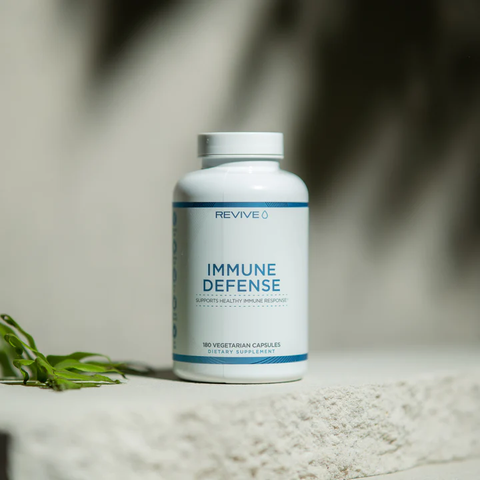Exploring the Health Benefits: Quercetin Green Tea
Have you ever thought about why some foods are called "superfoods" and what makes them so special? The key lies in a natural compound called quercetin. It's found in many foods we consider super, like red wine, green tea, kale, and blueberries. Quercetin is well-known for its health benefits, such as improving heart health and immunity.
Interestingly, quercetin is one of the most common and extensively studied flavonoids. Numerous studies have demonstrated its ability to fight cancer, reduce inflammation, and fight viruses. When combined with bromelain, an enzyme with anti-inflammatory properties, quercetin's benefits become even more impressive.
Everyone loves quercetin green tea in particular — not only is it comforting, but it comes with plenty of health benefits, too. This “superfood” (or beverage, in this case) is something special. Why, you might ask? That’s exactly what we’re going to explore in this article, so stick around!

What Is Quercetin?
Quercetin belongs to a group of plant pigments called flavonoids. It's naturally present in many foods and drinks, and you can also get it as a dietary supplement. As an antioxidant, quercetin fights against harmful molecules in your body, and its anti-inflammatory properties can help decrease swelling.
Quercetin might also help control blood sugar levels and lower the risk of heart disease. Studies suggest that taking quercetin supplements could also be good for your brain, boost your immune system, and help with managing weight.
Many people choose to drink green tea (or use green tea extract) because it contains quercetin. Quercetin green tea is also undeniably delicious, so we’re not surprised it’s gained so much popularity. Let’s talk about the specific benefits of drinking quercetin green tea next, shall we?

The Benefits of Drinking Quercetin Green Tea
If you’re a fan of green tea, then you’re in luck! Since green tea contains quercetin, it has plenty of great health benefits. Every time you drink green tea, you’re especially nourishing your body. Let’s delve into these health benefits in more detail below:
Has antimicrobial effects
Several studies have indicated that quercetin green tea possesses a wide range of antibacterial benefits. It has been demonstrated to protect against bacteria such as Salmonella enteritidis (salmonella), Staphylococcus aureus (staph), and Escherichia coli (E. coli) by damaging their cell walls and disrupting their function.
Quercetin has also been observed to prevent the growth of drug-resistant microbes. This suggests that quercetin might be useful in fighting bacteria strains that are not responsive to conventional treatments. Quercetin is particularly effective against bacteria affecting various systems in the body, including the skin, digestive tract, respiratory system, and urinary tract. It has shown promise in combating certain fungi and viruses.
Has antioxidant effects
During normal body processes, free radicals are created as byproducts. This just goes to show how complicated the human body is. Free radicals are molecules that can harm healthy cells, leading to gene mutations, speeding up aging, and raising the chances of diseases like heart disease and diabetes.
Quercetin green tea works against the damaging effects of free radicals because of its antioxidant properties. By acting as a potent antioxidant, quercetin helps the body stay balanced, slowing down premature aging and lowering the risk of chronic diseases. So far, a lot of animal studies have been done, but scientists believe that these effects apply to humans as well.
Helps with weight management
Only a few human studies have looked into how quercetin green tea might help with treating obesity, but the findings are encouraging. In a small study, researchers randomly assigned six men and 30 women who were overweight or obese to either take 100 milligrams (mg) of quercetin or a placebo every day for 12 weeks.
The results showed that the group taking quercetin experienced significant decreases in weight, body mass index (BMI), and measurements of waist, hip, and thigh circumference. Additionally, there was a reduction in overall body fat percentage, particularly in the arms. However, more research, especially involving larger groups of people, is necessary to confirm the effects of quercetin on weight loss.
Improves heart health
Quercetin helps protect heart health through several mechanisms. Studies have demonstrated that it can lower both systolic and diastolic blood pressure, as well as reduce the strain on arteries. This is more important than you might think, because prolonged high blood pressure can damage arteries and contribute to heart disease.
Quercetin has also been found to decrease levels of total cholesterol and triglycerides, which are fats that, when elevated, can heighten the risk of heart disease. As mentioned previously, it also combats oxidation, a process that alters "bad" low-density lipoprotein (LDL) cholesterol in a way that leads to artery hardening. Not only that, but quercetin helps with the regeneration of blood vessels.
Supports immune function
Research on the relationship between quercetin green tea and immune function has produced mixed findings, but there are some signs that this fascinating flavonoid could potentially support immune health.
In a study involving 1,002 participants, who took either 500 mg or 1,000 mg of quercetin daily or a placebo for 12 weeks, overall, quercetin supplementation didn't show a significant effect on the occurrence of upper respiratory tract infections like colds when compared to the placebo.
However, among a subset of participants aged 40 or older who considered themselves physically fit, taking 1,000 mg of quercetin per day resulted in fewer total sick days and less severe symptoms of upper respiratory tract infections.
Another study among athletes found that taking 100 mg of quercetin daily didn't affect their immune function after three days of intense exercise, but it did lower the risk of upper respiratory tract infections significantly. In the two weeks following the exercise sessions, only one out of 20 participants in the quercetin group became ill, compared to nine out of 20 in the placebo group.

May help with PCOS regulation
Polycystic ovary syndrome (PCOS) is a common cause of infertility. It affects 6%-12% of women in the United States who are of reproductive age. People with PCOS typically have higher levels of the male hormone androgen compared to what's typical in females. These elevated androgen levels can lead to irregular ovulation. People with PCOS also often experience insulin resistance, where their bodies produce insulin but cannot use it effectively. This condition increases the risk of developing type 2 diabetes.
There have been a limited number of human studies investigating the effects of quercetin supplements compared to a placebo on PCOS. The initial research has shown promising results (those who took quercetin experienced improvements in hormone levels and insulin regulation). However, scientists caution that more studies are needed to draw definitive conclusions about the effectiveness of quercetin supplements for managing PCOS symptoms.
Neuroprotective effects
Fascinatingly, quercetin has been found to improve brain function and reduce inflammation in the brain. A clinical trial published in 2022 examined the effects of regularly drinking quercetin green tea on Japanese participants experiencing age-related cognitive decline. Those who drank the quercetin green tea showed notable improvement in reaction time.
While the study suggests that quercetin treatment might help prevent a decline in cerebral blood flow and brain activity associated with stress, the difference between the treatment group and the placebo group wasn't statistically significant. Still, though, the potential neuroprotective effects of quercetin are worth paying attention to!
Is Quercetin Safe?
Some people may have concerns about whether it’s safe to take quercetin, especially in supplement form. As an ingredient in food and drinks, quercetin is considered safe by the U.S. Food and Drug Administration (FDA) in amounts up to 500 mg per serving. While you can take quercetin as a supplement, the safety and effectiveness of long-term use are not well understood.
Currently, it's considered safe to take up to 1 gram of quercetin supplements daily for 12 weeks. However, more research is needed to understand the safety of longer-term use and higher doses. It’s also always a good idea to ask your doctor before taking any type of supplement, so don’t forget to do that!
People with kidney problems should try to avoid quercetin, especially if administered intravenously, as it may worsen kidney issues. It's also unclear how safe quercetin is for pregnant women or breastfeeding women, so these groups should avoid taking it in supplement form.
Potential Side Effects of Quercetin
Once again, when consumed as a food, quercetin is generally considered quite safe. As a supplement, it’s also pretty safe when taken in moderate amounts for a short period of time (like 500 milligrams twice daily for 12 weeks, for example). However, the risks of long-term use are still uncertain.
Quercetin may lead to side effects such as headaches or tingling sensations in the arms and legs. If quercetin is administered intravenously, other side effects may occur. High doses of quercetin could potentially cause kidney damage. As stated before, pregnant and breastfeeding women should avoid taking quercetin supplements, as they might already be getting enough quercetin from their diets.
When taking medications like antibiotics, cyclosporine, or warfarin (or any drugs metabolized by the liver), you’ll want to exercise caution when taking quercetin, as it could potentially alter the effectiveness of these medications and increase the risk of side effects.
Quercetin doesn't appear to have interactions with foods or other herbs and supplements. However, you should talk to a healthcare professional before taking quercetin supplements (or any supplements for that matter).
Enjoy the Benefits of Quercetin with Revive’s Immune Defense Supplement
If you’re not a big fan of green tea, don’t worry — you can get your daily dose of quercetin from Revive MD’s Immune Defense supplement. You can also experience the benefits of quercetin by eating foods like broccoli, berries, leafy green vegetables, and onions. Salad-lovers unite! Quercetin is also found in apples, which may be the reason behind the “an apple a day keeps the doctor away” saying.

Revive MD should be your number one resource for supplements — whether you’re struggling with organ health or just want to start being a little more health-conscious. As always, make sure to consult with a healthcare professional before starting any sort of supplement regimen.
The information being presented in this blog is intended to be used as educational or resource information only. It is not intended to be a substitute for medical advice from your healthcare provider. This content should not be used for the diagnosis or treatment of any medical condition. If you have any questions or concerns about your health, please contact your healthcare provider. You should call 911 for all medical emergencies. Revive MD is not liable for any advice or information provided on this blog, which advice or information is provided on an “as-is” basis, and assumes no liability for diagnosis, treatment, decisions, or actions made in reliance upon any advice or information contained on this blog. No warranties, express or implied, are made on the information that is provided.

